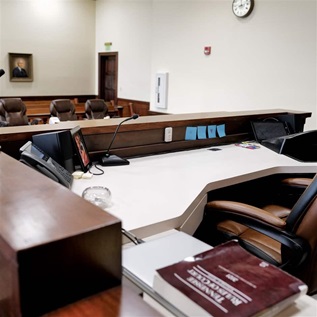Pew Survey Finds Mayor Nutter Gets High Marks from Philadelphians
Halfway through his four-year term as mayor, Michael Nutter continues to get generally high marks from city residents after a tough economic year dominated by a prolonged budget crisis. Fifty-three percent of Philadelphians approve of the job he is doing as mayor, compared to 32 percent who disapprove. This is an improvement since April 2009, when his job approval rating was 47 percent and disapproval was 39 percent.
But residents are divided over the wisdom of the sales tax increase enacted last year to resolve the crisis, and they remain split over whether the priority moving forward should be preserving services or holding down taxes.
These are among the findings of a wide-ranging new poll of 1,602 residents commissioned by The Pew Charitable Trusts' Philadelphia Research Initiative (PRI) and conducted by Abt SRBI Public Affairs, working with Rutgers Professor Cliff Zukin.
Nutter remains popular with city residents. Sixty percent have a favorable impression of him, twice as many as the 30 percent who have an unfavorable impression. But he does not do as well when residents are asked whether they are confident in his ability to handle the city budget. On that topic, Philadelphians are evenly divided, with 47 percent expressing confidence in him, and 46 percent voicing a lack of confidence, a decline from a year ago when 57 percent said they were confident in his ability to do the right things in handling the city's budget problems.
The mayor continues to get far higher ratings from white residents than from blacks. On the job approval question, for example, blacks are evenly divided on him—with 43 percent approving his performance and 43 percent disapproving—while whites voice a positive view by 65 percent to 21 percent. Hispanics are nearly as favorably inclined toward the mayor as are whites.
On budget-related issues, opinion is closely divided on the move last year to raise the sales tax from 7 percent to 8 percent in order to help avoid large-scale layoffs and service cuts. Forty-seven percent approve of the tax hike, 49 percent disapprove. Philadelphians are also split almost down the middle, as they were a year ago, when asked to choose between two options for moving forward. Higher taxes and more services get support from 41 percent of those polled, lower taxes and fewer services from 43 percent.
“Mayor Nutter's numbers are quite solid, given all that he's been through in the last two years,” said Larry Eichel, project director of Pew's Philadelphia Research Initiative. “And it's notable that after paying higher sales taxes for four months to avoid more draconian budget cuts, the public remains as divided as ever on that fundamental choice.”
In addition, residents say they do not see much difference in the quality of city services compared to a year ago, before the most recent round of budget cuts. In all, 15 percent of respondents think services have gotten better, 17 percent worse and 62 percent no change.
For the first time, PRI asked residents about the job performance of two other leading figures in the city's public life: Police Commissioner Charles Ramsey and Schools Superintendent Arlene Ackerman. Ramsey is overwhelmingly popular with the public; 69 percent approve of his job performance and only 11 percent disapprove. Ackerman has made less of an impression. Those approving her job performance outnumber those who disapprove by a 3-2 ratio; more than half of those polled expressed no opinion about her.
City Council also received a positive job rating, by a margin of 42 percent to 34 percent. That is an improvement from last April's poll when respondents were evenly split on council.
The survey also measured public attitudes about casino gambling in Philadelphia, where the first casino is set to open in the spring. Philadelphians approve of slot-machine parlors coming to the city, 51 percent to 34 percent. That is the widest margin of approval since January 2009, when PRI began asking the question (residents were subsequently polled on the issue in April 2009). In the current survey, respondents also support the state's decision to allow table games in casinos, by a margin of 54 percent to 32 percent.
Additional results of PRI's annual benchmark survey will be released later this month.
How the study was conducted
The Philadelphia Research Initiative survey was conducted by telephone between January 8 and January 19 among a citywide random sample of 1,602 city residents, ages 18 and older. Interviews were conducted with 1,302 landline users and 300 cell phone users to reach a broad representative sample of Philadelphians.
The final sample was weighted to reflect the demographic breakdown of the city. The margin of error for the entire sample is approximately +/- 2.5 percentage points. The margin of error is higher for subgroups. Surveys are subject to other error sources as well, including sampling coverage error, recording error and respondent error.
Abt SRBI Public Affairs designed the survey and conducted all interviewing, working with Cliff Zukin, veteran pollster and professor of political science and public policy at Rutgers University.
About the Philadelphia Research Initiative
The Pew Charitable Trusts' Philadelphia Research Initiative (http://www.pewtrusts.org/philaresearch) provides timely, impartial research and analysis on key issues facing Philadelphia for the benefit of the city's citizens and leaders. Pew is a nonprofit organization that applies a rigorous, analytical approach to improve public policy, inform the public and stimulate civic life.











